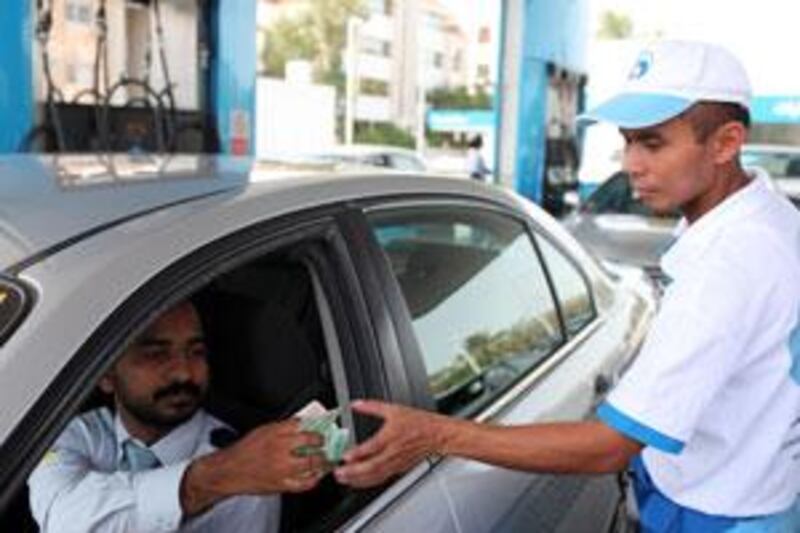Hauliers and bus companies were caught unaware yesterday after the Abu Dhabi National Oil Company (ADNOC) raised the price of diesel at the pumps by 11 per cent. The move, which came with no official warning, happened on the same day the price of petrol rose 11 per cent across the UAE, an increase that was announced on Saturday.
The rise in the price of diesel was the first since 2006, while petrol prices last went up in 2005. But the long-term effect of the twin increases on the general economy is likely to be muted, economists said, and would help correct a market distorted by subsidies. Diesel now costs Dh2.10 a litre, up from Dh1.89. ADNOC had held prices constant even as Dubai-based retailers charged rates for the fuel based on the cost of buying crude oil from the international market.
As the price difference between ADNOC and other retailers grew, reaching 100 per cent at its peak in the summer of 2008, the company's filling stations became an oasis of sorts for lorry drivers, with many driving from Dubai and the Northern Emirates to Abu Dhabi in search of ADNOC garages. The price of diesel at Dubai retailers yesterday was Dh2.60 a litre. Smaller haulage companies that rely on ADNOC will have trouble passing on the cost of the fuel increase to consumers, said Reggie Vergis, 35, an Indian lorry driver.
"It will affect me because I'll have to charge higher prices to companies I'm working with, but they are not ready to pay for any further charges because of the slowdown," Mr Vergis said. "I will have to bear all the additional expense." The diesel increase will raise the monthly operating cost of Oman Transport, a large haulage firm, by about Dh30,000 (US$8,168), said Selwyn Burbridge, the company's general manager.
The effect would be relatively small but the rise came after Sharjah announced last month it would bring in a Dh100 toll on heavy vehicles using a road connecting the emirate to Fujairah, Mr Burbridge said. "The Dh100 road toll at Al Dhaid, which would appear to be coming into effect on May 1, has the potential to increase our costs by around Dh1.5 million a year, or 50 times the impact of the fuel increase," he said. But it would help to close the price gap between Dubai and Abu Dhabi "which can only be a good thing", Mr Burbridge added.
The rise in the price of petrol means the lowest grade of the fuel now costs 15 fils more at Dh1.41 a litre. Besides hitting consumers in the pocket, that increase is likely to harm the profits of taxi owners and small businesses that rely on cars and light vehicles. Taxi owners have already called for government regulators to approve a fare increase after completing a study on the effects of petrol costs.
Over the longer term, the increase in fuel prices would have little impact on inflation or the broader economy, said Jarmo Kotilaine, the chief economist of NCB Capital, the investment arm of Saudi Arabia's largest bank. "From an inflation point of view this is a one-off and in the UAE inflation has come down sharply, so I'm not significantly concerned," Mr Kotilaine said. He said the rises were a sensible policy, as the Government looks to wean the economy off energy subsidies, which encourage wasteful consumption. "It does not make sense to subsidise," Mr Kotilaine said. "If Gulf countries want to improve their fiscal accounts they have to move to a situation where the price of petrol domestically is more closely related to the price of oil."
* Additional reporting by Tom Arnold cstanton@thenational.ae halsayegh@thenational.ae





